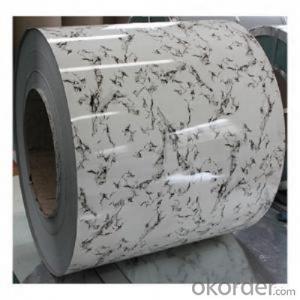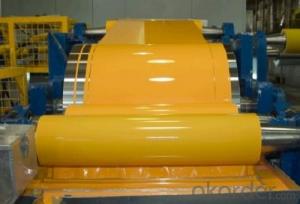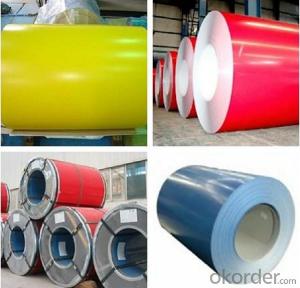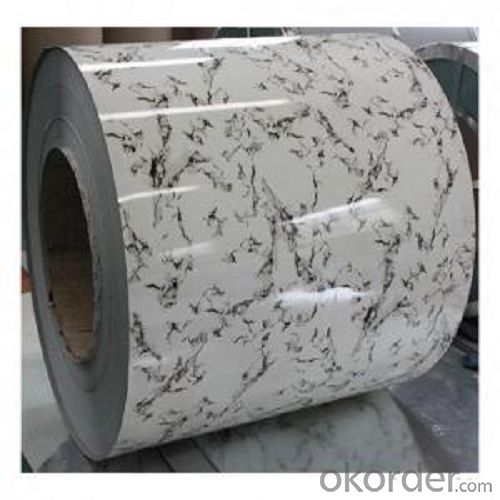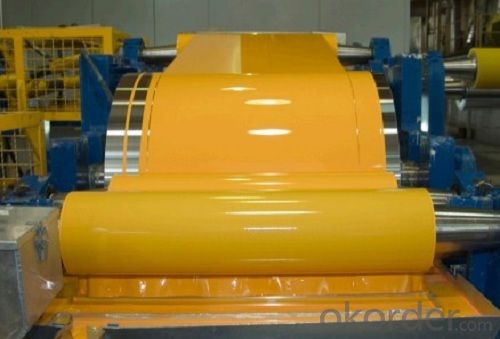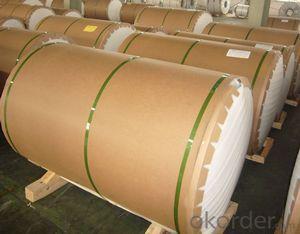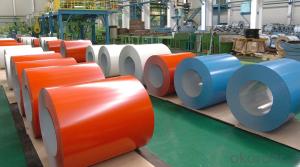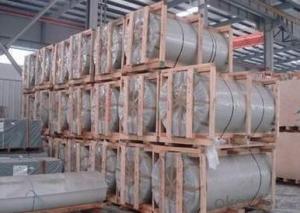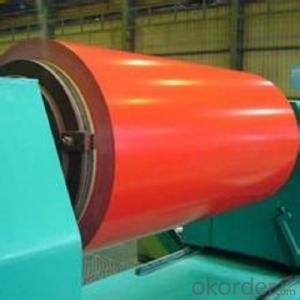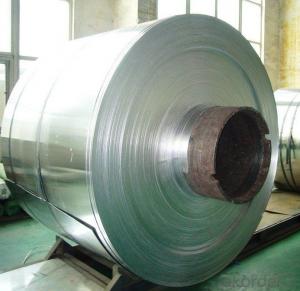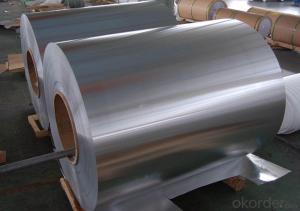1050 1060 Decorative Color Coated Aluminum Coil Slitting Machine
- Loading Port:
- Shanghai
- Payment Terms:
- TT OR LC
- Min Order Qty:
- 5 m.t.
- Supply Capability:
- 5000 m.t./month
OKorder Service Pledge
OKorder Financial Service
You Might Also Like
l Specifications of 1050 1060 decorative color coated aluminum alloy coil
Brand | CMAX | |
Alloy | 1100, 1235, 3003, 3004, 3005, 3105, 5005, 5052, 8011 | |
Thickness | 0.2mm~200mm | |
Width | 40mm -1500mm | |
MOQ | 5T | |
Coating finish | PVDF, POLYESTER, NANO, BRUSHED | |
Color | As to code RAL | |
Surface | Embossed, Mill Finish, Coated | |
Gloss | 10-90% (EN ISO-2813:1994) | |
Total coating thick | PVDF 25 micron | |
Polyester 18micron (EN ISO-2360:1995) | ||
Coating hardness | 2H | |
Adhesion | 5B (EN ISO-2409:1994) | |
Impact resistance | No cracking and peeling (A.S.T.M D2794-1993) | |
Flexibility (T-bend) | 0T- 2T | |
MEK resistance | 100 | |
Usuage | Exterior applications | wall cladding, facades, roofs and canopies, tunnels, |
Interior applications | wall cladding, ceilings, bathrooms, kitchens and | |
Advertisement and market applications | display platforms, signboards, and shop fronts | |
Coil's standard diameter | 1100mm | |
Coil's standard weight | 2000kg | |
Botton side aluminium sheet is coated with protective polyester material, thickness more than 6 micron | ||
l Packaging & Delivery
Packaging detail: Standard seaworthy exporting carton, Wooden pallets, waterproof paper and plastic coverage or as customer's requirements
Delivery detail: about 25 days from received original L/C or advanc payment
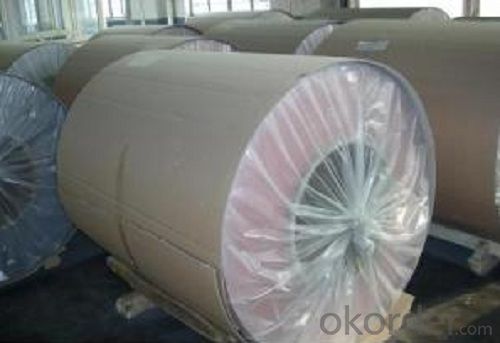
l Company Profile
CNBM International Corporation, China National Building Materials (Group) Corporation, is one of the largest companies in China building material & equipment industry, with 42,800 employees and sales in 2005 of US Dollar 4.395 billion. In 2006, China National Building Material Company Limited was listed on Hong Kong Stock Market with the stock code as 3323.
Color Coated Aluminum Coil is a popular product supplied by CNBM. With advanced technology and equipment, our company is ready to meet any of your requirements.
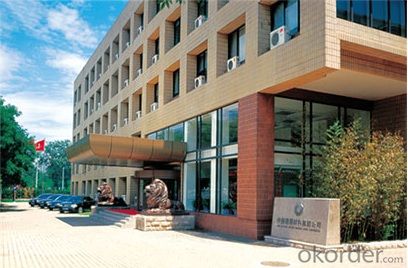
l Product Images
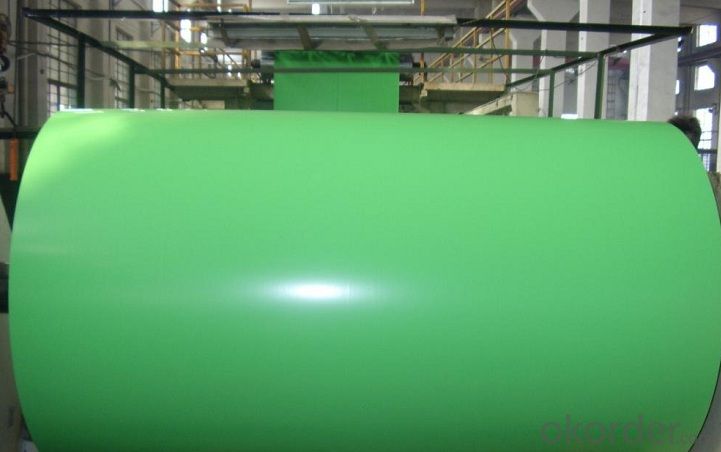
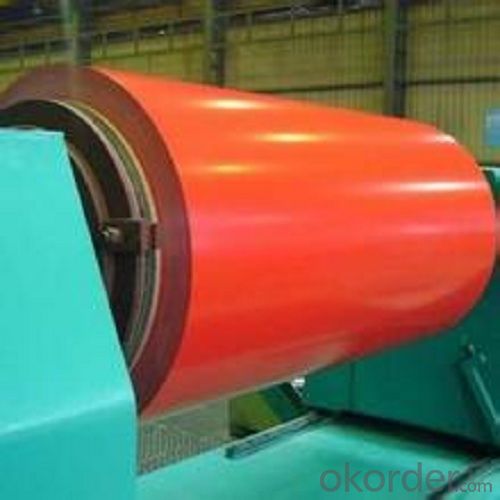
l FAQ
Q: Do you provide free samples?
A: Yes, free samples will be sent to you on freight at destination.
Q: Can I get your latest products catalogue?
A: Yes, it will be sent to you in no time.
Q: What is the MOQ?
A: 5 tons
Q: What are your payment terms?
A: We accept L/C, T/T.
l Contact us
Email:service@okorder.com
- Q: What are the main causes of aluminum strip rolling?
- Different thickness analysis is not the same, is curly after the thickness of the upper rib, or out of the roll can be visual?
- Q: I know aluminum has gone up in price. I know very little about gutter material. Durability, leaf guards, etc. I am on a limited income, and need the most and best for my few bucks. Thanks Lee
- Go with aluminum seamless gutter ,plastic only comes in 10 ft lenghts so you would have more seams which means more chances of it leaking A easy formula to figure out whataluminumn gutter will cost is and it goes by linear footage so measure your house where gutters would go and then add 12 LF for each downspout you will need about 4 and you have the total and if you call a contractor they will give you a free estimate but it should cost you about $2-$3 a Linear foot everyone is hurting for work so get a couple bids and go back and forth for the best price Also leaf guard is expensive about $4 a LF look for similar products that are cheaper hope this helps
- Q: Can aluminum coils be used in refrigeration systems?
- Yes, aluminum coils can be used in refrigeration systems. Aluminum is a common material choice for evaporator coils in refrigeration systems due to its excellent heat transfer properties, corrosion resistance, and lightweight nature.
- Q: What are the potential applications of coil-laminated aluminum coils?
- Coil-laminated aluminum coils have a wide range of potential applications in various industries. They can be used in the manufacturing of automotive parts, such as body panels and interior components, due to their lightweight yet durable nature. Additionally, they are suitable for building and construction purposes, including roofing, siding, and insulation, as they offer excellent corrosion resistance and thermal conductivity. Furthermore, coil-laminated aluminum coils find use in electrical industries for producing transformers, capacitors, and other electrical components due to their excellent electrical conductivity. Overall, their versatility and desirable properties make coil-laminated aluminum coils valuable in numerous applications across different sectors.
- Q: Are aluminum coils resistant to impact damage?
- Aluminum coils, in general, possess resistance to impact damage. The strength-to-weight ratio and durability of aluminum render it less vulnerable to impact damage in comparison to alternative substances. Moreover, aluminum coils are commonly employed across diverse industries, where they encounter a range of environmental conditions and handling procedures, and are engineered to endure such impacts without succumbing to damage. Nevertheless, it is crucial to acknowledge that the degree of impact resistance may fluctuate depending on the precise thickness, quality, and design of the aluminum coil.
- Q: How is an aluminum coil made?
- Aluminum coil rolling, a manufacturing process, is responsible for the production of aluminum coils. The process comprises multiple stages. Initially, molten aluminum is poured into large molds, resulting in the formation of large ingots or billets. These ingots are then heated to increase their malleability. After heating, the ingots are transformed into thin strips through the utilization of heavy machinery called hot rolling mills. The ingots pass through a series of rollers, gradually reducing their thickness while simultaneously increasing their length. This continuous hot rolling guarantees uniform thickness and a smooth surface finish. Following hot rolling, the aluminum strips undergo cooling and subsequent processing. Cold rolling, which involves passing the strips through cold rolling mills, is commonly employed. Cold rolling further decreases the thickness of the aluminum strips, creating the desired gauge or thickness necessary for the final product. To enhance the mechanical properties and surface finish of the aluminum, the cold-rolled coils may undergo additional treatments such as annealing, tempering, or surface treatment. Annealing includes heating the coils to a specified temperature and gradually cooling them to alleviate internal stresses and improve their ductility. Tempering is a similar process, albeit conducted at a lower temperature than annealing. Once the desired properties are achieved, the aluminum coils are typically trimmed, cut, and packaged into coils or sheets, thereby becoming ready for distribution or further fabrication. These coils find extensive use in various industries, including construction, automotive, aerospace, and packaging. Their lightweight nature, corrosion resistance, and exceptional thermal conductivity contribute to their high demand.
- Q: Are aluminum coils suitable for marine applications?
- Yes, aluminum coils are suitable for marine applications due to their excellent corrosion resistance properties in saltwater environments.
- Q: Are aluminum coils suitable for high-temperature applications?
- High-temperature applications are generally not suitable for aluminum coils due to their low melting point of approximately 660 degrees Celsius (1220 degrees Fahrenheit). Aluminum, despite its advantageous properties like lightweight and corrosion resistance, cannot withstand the extreme heat associated with such environments. In contrast, materials with higher melting points like stainless steel or nickel alloys are often preferred for high-temperature settings. These materials can endure higher temperatures without compromising their structural integrity or experiencing significant deformation. However, it is important to note that certain aluminum alloys have been developed to possess improved high-temperature properties. These alloys incorporate elements like copper, magnesium, or zinc, which enhance their strength and heat resistance. As a result, these specialized aluminum alloys may be suitable for specific high-temperature applications that require their unique properties. To summarize, standard aluminum coils may not be appropriate for high-temperature applications, but specialized aluminum alloys are available to offer better performance in elevated temperature environments. It is crucial to consider the specific temperature requirements and consult experts to determine the most suitable material for a particular high-temperature application.
- Q: How do aluminum coils perform under low-temperature applications?
- Aluminum coils are known for performing exceptionally well under low-temperature applications. Due to its inherent properties, aluminum is highly resistant to low temperatures and can maintain its structural integrity even in extreme cold conditions. The low thermal expansion coefficient of aluminum allows it to contract and expand without compromising its performance, making it an ideal choice for various low-temperature applications. One of the key advantages of aluminum coils in low-temperature applications is their ability to resist corrosion. Aluminum naturally forms a protective oxide layer that prevents it from rusting or corroding, even in cold and wet environments. This makes aluminum coils highly durable and ensures their longevity, even when exposed to low temperatures for extended periods. Additionally, aluminum has excellent thermal conductivity, which means it effectively transfers heat even at low temperatures. This property is crucial in applications such as refrigeration and air conditioning, where efficient heat transfer is required to maintain the desired temperature levels. Aluminum coils can effectively dissipate heat, ensuring optimal performance in low-temperature environments. Furthermore, aluminum coils are lightweight, which makes them easier to handle and install in low-temperature applications. Their lightweight nature also contributes to energy efficiency, as less energy is required to transport and operate the equipment using aluminum coils. In summary, aluminum coils perform exceptionally well under low-temperature applications. Their resistance to corrosion, thermal conductivity, durability, and lightweight nature make them an ideal choice for various industries, including refrigeration, air conditioning, and low-temperature processing.
- Q: Can aluminum foil coil be stores for a long time?
- It is ok within one or two years, but for five or six years, it will be oxidized.
Send your message to us
1050 1060 Decorative Color Coated Aluminum Coil Slitting Machine
- Loading Port:
- Shanghai
- Payment Terms:
- TT OR LC
- Min Order Qty:
- 5 m.t.
- Supply Capability:
- 5000 m.t./month
OKorder Service Pledge
OKorder Financial Service
Similar products
Hot products
Hot Searches
Related keywords
